Senedd 2021: Could reservoirs create green energy?
- Published
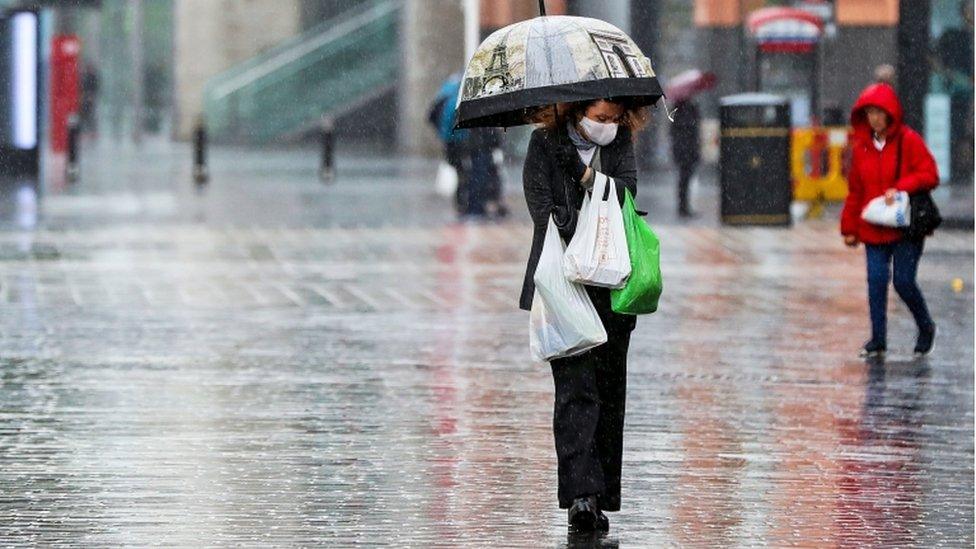
The unpredictable Welsh weather means most people have been caught in a downpour at some stage
There are few things more predictable in Wales than rain.
Areas of Snowdonia and Powys see high levels, with much of it collected in reservoirs to provide water.
So, why are we not harnessing more renewable energy from the grey clouds that often hover ominously in the sky?
We asked readers what they'd do if they ran Wales, and Andrew Fullman, of Cardiff, said he'd like hydroelectric reservoirs to be considered after the Senedd election on 6 May.
The 51-year-old has heard politicians advocate the use of solar panels, wind turbines on land and at sea, and even examine a tidal barrage as we try to cut carbon emissions and provide greener energy.
He now wants a commission to examine the viability of utilising reservoirs more, adding: "We have over 100 in Wales, the infrastructure is already there.
"There can't be many places that have as many reservoirs as us, certainly not in terms of the size of the area, and we supply half of England with water.
"So let's put it to some use."

WALES ALERTS: Get extra updates on BBC election coverage

Water from Lake Vyrnwy helps supply people in Liverpool and Cheshire
According to the Met Office, areas of Snowdonia and Powys, as well as locations in the Scottish Highlands and the Lake District, receive more than four metres, external (13ft) of rainfall a year.
Mr Fullman believes this puts sites such as Lake Vyrnwy in Powys, Llyn Conwy in north-west Wales and Ystradfellte Reservoir in the Brecon Beacons in a prime position to provide energy as they export water to our taps.

Andrew Fullman believes rainy days should be seen as an energy opportunity
There are currently 363 hydropower projects in Wales, which use turbines to generate electricity as water flows through, and contribute 2% of the country's needs.
While some reservoirs, such as Caban Coch in the Elan Valley, produce this form of renewable power, most are small initiatives, such as farmers using streams running through their land.
However, a grant scheme for these ends this month.
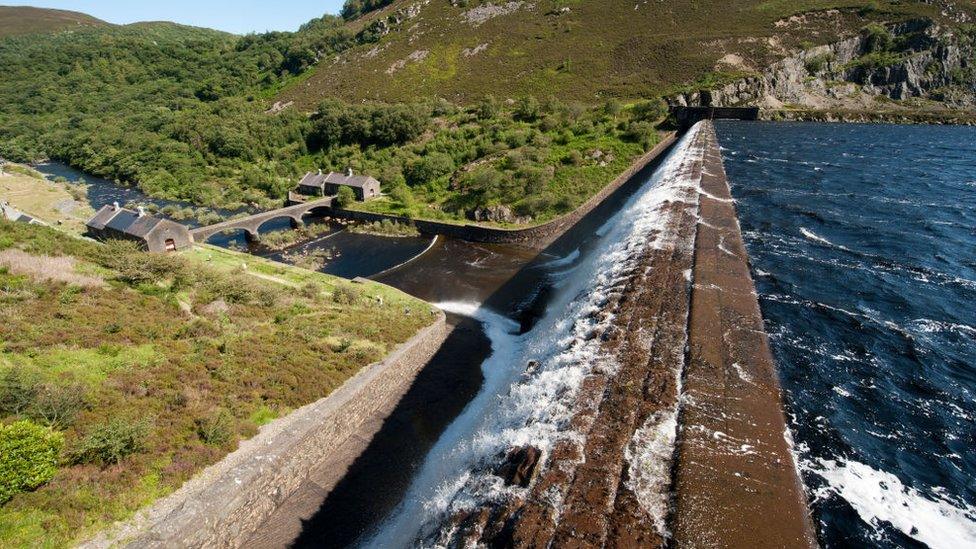
Much renewables focus has been on wind farms - with one capable of generating enough energy to power 3.4 million homes proposed off the north Wales coast.
There are also plans to put floating turbines in the Celtic Sea about 28 miles (45km) off Pembrokeshire.
A £1.3bn tidal lagoon was also explored in Swansea, but plans did not progress after the UK government decided not to back them.
Some proposals have been controversial, such as the Parc Solar Traffwll development on Anglesey, which supermarket giant Tesco plans to source renewable energy from.

Leaders debate: If you would like to be part of the virtual audience for the BBC Wales Election 2021 Leaders Debate on 29 April, please email us your details to waleslive@bbc.co.uk.

Mr Fullman believes reservoirs could be an alternative, adding: "The infrastructure is already there, with water running through them.
"Any hydroelectric plant could be incorporated into the countryside, which would not affect the beauty of the landscape such as when you put big (wind) turbines there."
Another big plus, he said, was "it rains all the time" in Wales, making it "an endless supply of energy".
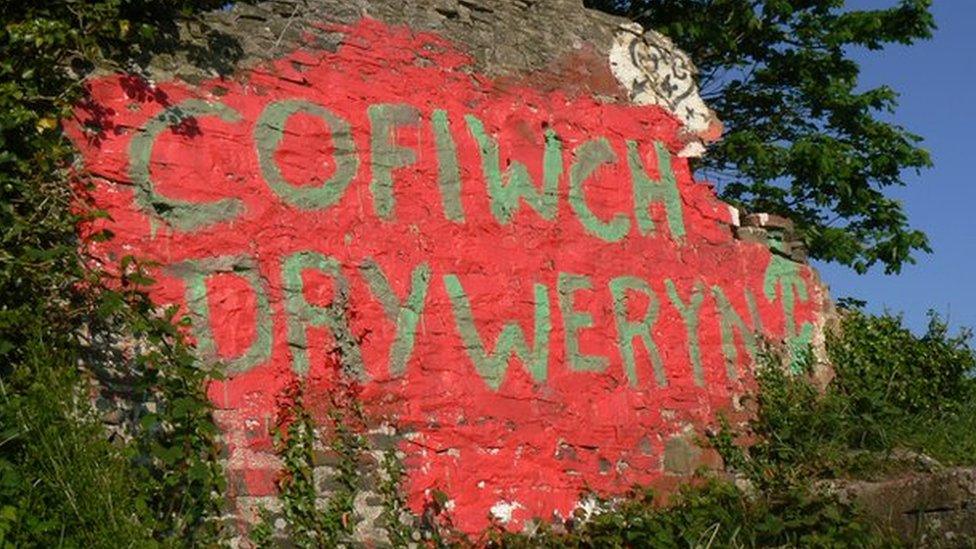
The Cofiwch Dryweryn mural, remembering the village of Tryweryn, has been vandalised and repainted many times
The large volumes supply people in Wales, with billions of litres also exported over the border each year to homes in England.
For example, Severn Trent's water from the Elan Valley reservoirs mostly goes to customers in Birmingham via a 63-mile (102km) aqueduct which has been in use for 100 years.
Some reservoir developments in Wales, though, have proved controversial.
There was an outcry in 1965 when 70 people were forced to leave their homes in Capel Celyn before their houses, the village school, chapel and post office vanished under millions of litres of water for the new Tryweryn reservoir, built to service Liverpool more than 60 miles (95km) away.
In 2005, Liverpool City Council apologised, saying: "We realise the hurt of 40 years ago when the Tryweryn Valley was transformed into a reservoir to help meet the water needs of Liverpool."

Analysis - Steffan Messenger, BBC Wales environment correspondent
From the parties' manifestos it would seem that the environment has shot up the list of priorities at this election.
But it's no surprise given the scale of the challenge involved in responding to climate change and Wales' new legally binding targets to eliminate greenhouse gases by 2050.
A lot of spadework needs to be done by the next government.
Many will see it as an opportunity to secure a "green recovery" from the pandemic.
And on renewable energy - Welsh ministers have in recent years gained extra powers and more say over larger schemes.

Mr Fullman added: "We may as well put it all to good use. How much energy could it provide? When it rains more, we could be producing more energy.
"With solar power, you need the panels everywhere, but when there is less sunlight, they produce less.
"But it always rains in Wales, all year round. This could produce more electricity. It's a win-win."

How do I register to vote?
If you are not already registered, you have until 23:59 on 19 April to sign up. You need to visit the government website and fill in the online form, external.
You can apply by post if you prefer.
If you are not sure whether you are registered, you can get in touch with your local council's election team.

WALES ELECTION: THE BASICS
What's happening? On 6 May, people will vote to elect 60 Members of the Senedd (MSs). The party that can command the support of a majority of MSs will form the Welsh government. Find out more here.
What powers does the Senedd have? MSs pass laws on aspects of life in Wales such as health, education and transport - and have some tax powers.
Who can vote? Anyone who lives in Wales, is registered to vote and aged 16 or over on 6 May is eligible. You can register to vote online, external.


POLICY GUIDE: Who should I vote for?
REGISTERING: How do I vote this year?
- Published28 July 2018
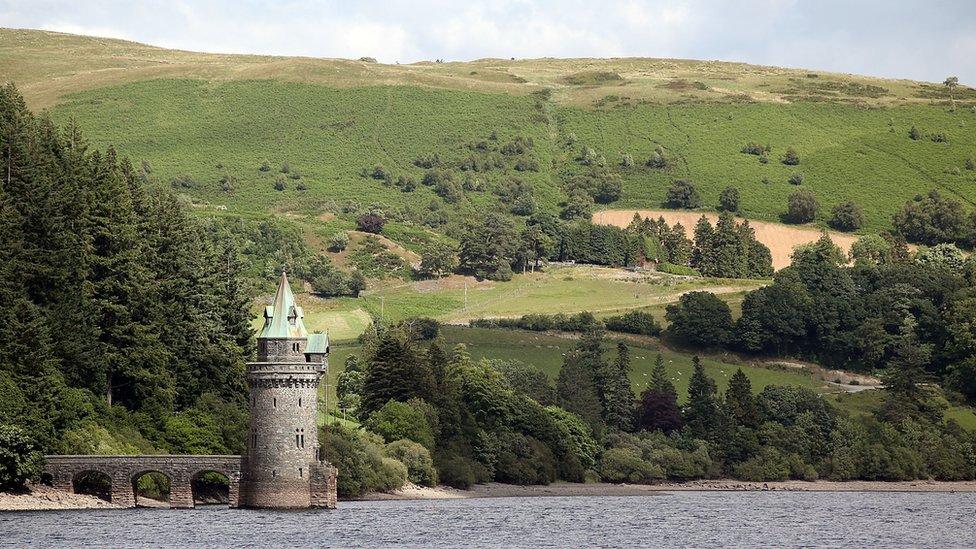
- Published26 February 2021
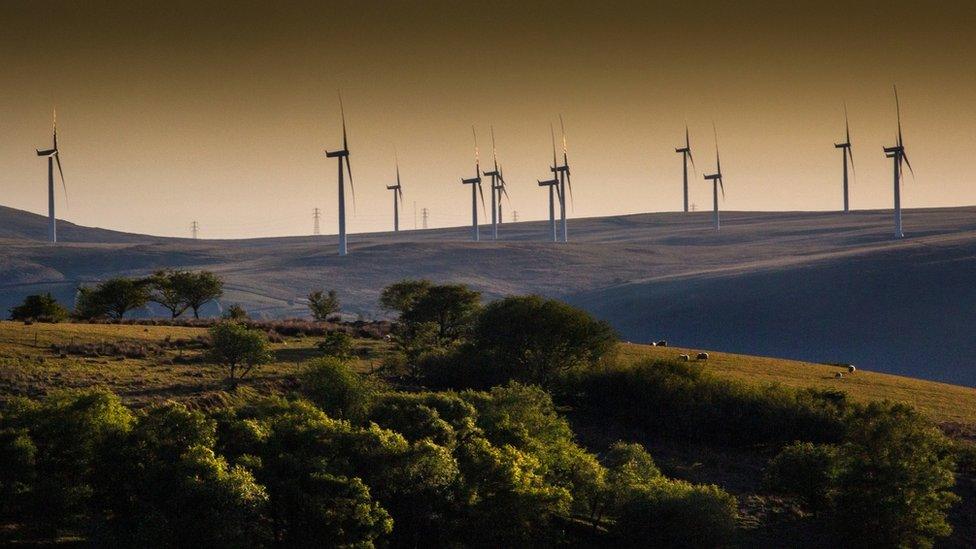
- Published15 November 2020
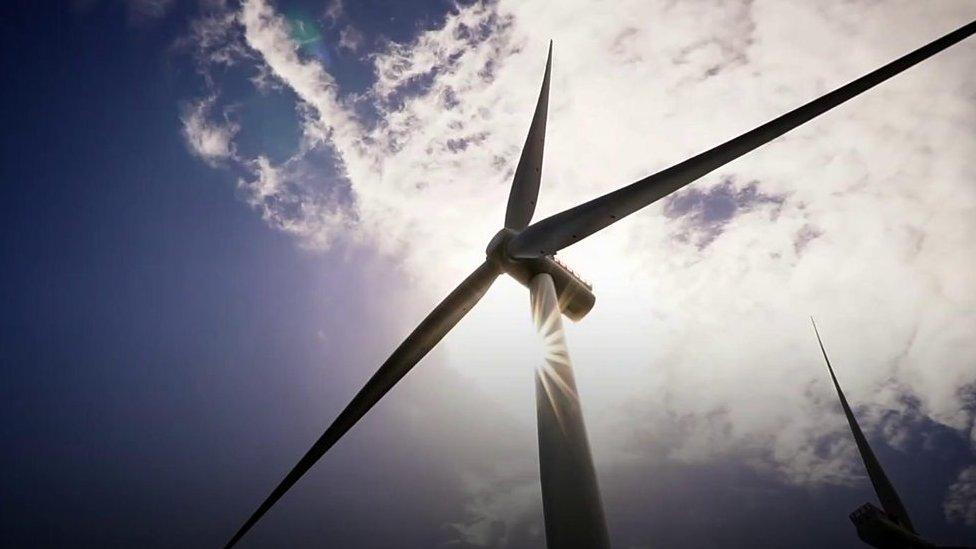
- Published7 April 2021

- Published8 February 2021

